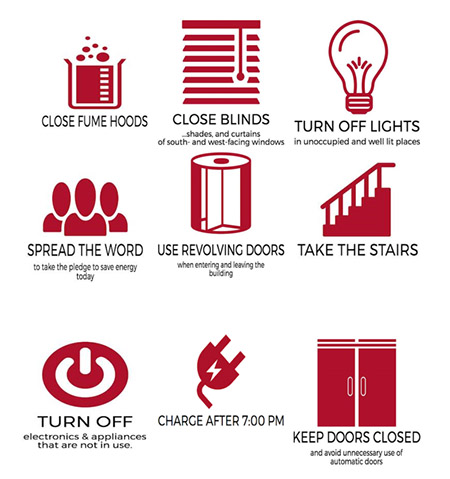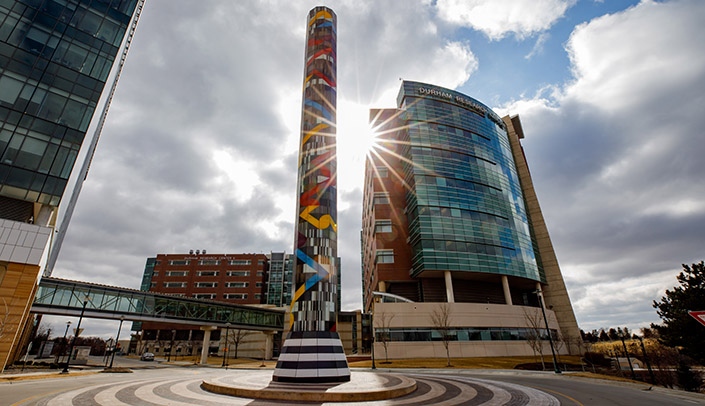Many of you have likely heard of “energy curtailment,” when colleagues and students are asked to help the campus by using less energy on days when the combined heat and humidity put extra stress on campus energy systems. A full explanation of energy curtailment is available below.
 |
By using less energy on these days, we:
- ensure essential systems, so critical hospital and research functions always have it
- reduce pollution
- improve the health of the entire community, and
- help to save money, both now (due to the drop in consumption) and for the next 12 months, as the next year’s electrical rate is based off our maximum usage at any given point in time. (This is always important, but especially now, as budgets are tight.)
We are in curtailment now and will be for the foreseeable future, so what simple things can you do to help?
- Close shades, blinds and curtains whenever possible to reduce solar heat gain;
- If you are on campus but your neighbors aren’t, please help by closing their window coverings and turning off any lights or equipment you can.
- Lower lighting levels where possible; turn off lights in unoccupied areas and when leaving a room;
- Turn off and unplug all electrical equipment not in use (computers, coffee makers, printers, chargers, etc.);
- Shut fume hood sashes when not in use;
- Open doors manually instead of using the ADA buttons;
- Take the stairs instead of the elevator; and
- Tell others.
Updated technology has allowed us to control curtailment better. Many spaces would normally be pre-cooled at night, but won’t be if buildings are largely unoccupied due to COVID-19/people working from home. It is possible that your space will get warmer as the day goes on. For a full explanation, please visit the energy curtailment page.
Spaces are not controlled individually; the system cools larger areas. So while the med center has a temperature range to maintain, it’s possible your space may not be the exact temperature you want. Only call 402-552-3347 (Nebraska Medicine) or 402-559-4050 (UNMC) to report spaces colder than 66 degrees or warmer than 78 degrees.
Are you interested in tracking our curtailment progress? Visit the campus metabolism page to compare your building’s energy use to a previous day, other buildings, see how much energy we are using in real time, or check out our solar panel output.
Patients and research spaces are not curtailed by UNMC Facilities Management and Planning, meaning these areas have control of their thermostats.
